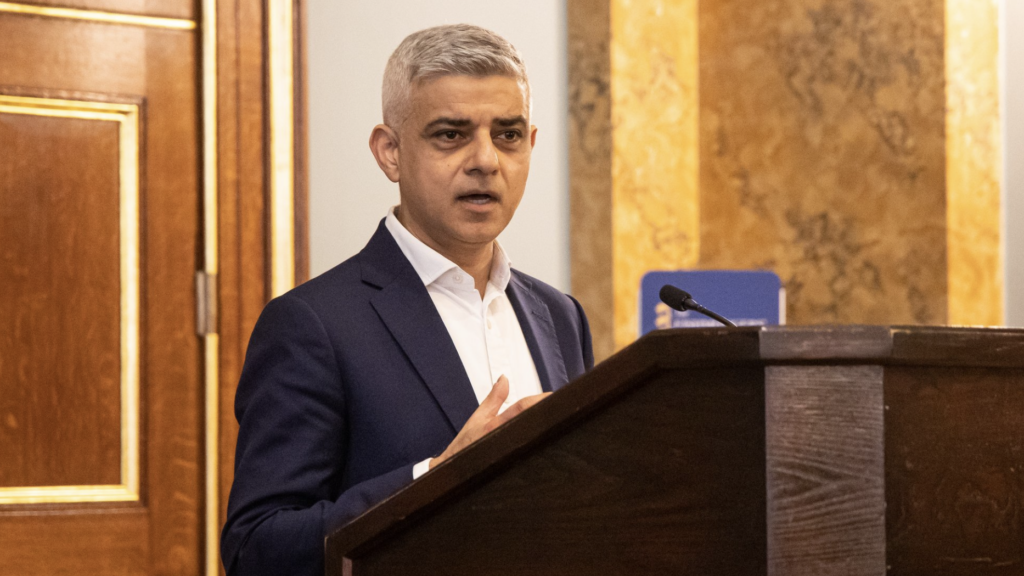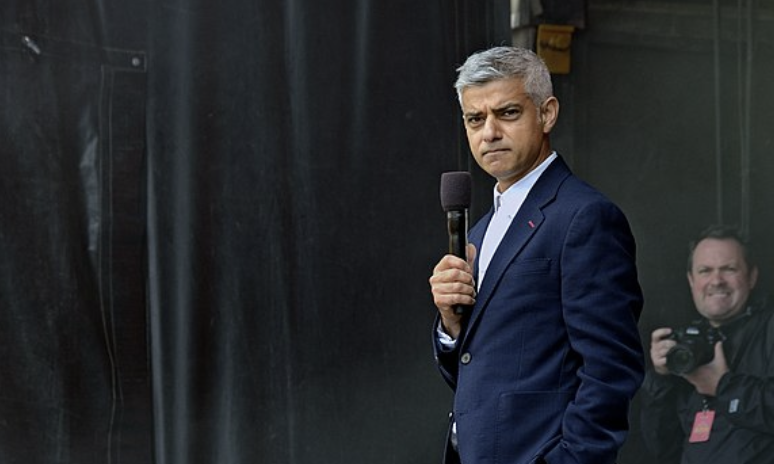Sadiq Khan supports calls for public inquiry after ‘damning’ Stephen Port report
Exclusive: Sadiq Khan tells Attitude "I'll be unflinching in holding the police to account"

Mayor of London Sadiq Khan would back calls from the family of victim Jack Taylor for a public inquiry after a scathing new report into how the Metropolitan Police Service (MPS) handled the Stephen Port case.
His Majesty’s Inspectorate of Constabulary and Fire & Rescue Services (HMICFRS) published their inspection report on Thursday (27 April).
It concluded that it’s possible that a case like that of Stephen Port, the ‘Grindr killer’ “could happen again.”
“The reason why I commissioned this report is because I didn’t have confidence when the previous leadership told me that lessons had been learnt” – Sadiq Khan
Additionally, it said it was “entirely possible,” that had the MPS carried out a thorough investigation after the death of Anthony Walgate – Port’s first victim – the other three, Gabriel Kovari, Daniel Whitworth, and Jack Taylor, would still be alive.
All four men were all in their early 20s when they died of GHB overdoses. These were administered by Port in his East London home between June 2014 and September 2015.
Port was found guilty of murder in 2016 and given a whole-life tariff, meaning he will never be released from prison.
Speaking to Attitude on Friday (28 April) Khan shared his thoughts on the findings, including supporting calls for a public inquiry from some of the victims’ family members.
The inspection was commissioned to see whether lessons have been learned by the Met. Are you confident that this is the case?
Sadiq Khan: Well, look, it’s really important that your readers understand, the reason why I commissioned this report is because I didn’t have confidence when the previous leadership told me that lessons had been learnt. The horrible murders of Anthony Walgate, Daniel Whitworth, Gabriel Kovari, and Jack Taylor happened in 2014 and 2015. We’re now in 2023. The inquest happened in 2021.
I was told that things had improved hugely. It’s quite clear from this report today, which is a damning report, things haven’t improved: fundamental flaws, basic failings, poor case memory systems, poor supervision, and that can’t be right. One of the things that His Majesty’s Inspectorate says is there could be other examples of people being found dead that have been homicides, but haven’t been properly investigated. We’ve got to make sure that the police action all recommendations. I’ll be unflinching in holding the police to account implementing the recommendations today from Dame Louise Casey. The quality of service you receive as a Londoner shouldn’t be dictated by what sexual intention you have, race or gender. That’s not acceptable.
Absolutely. The report said that it was impossible to conclude whether there was institutionalised homophobia in how the case was handled. Do you agree with that?
All I’d say is, the reason why His Majesty’s Inspectorate didn’t go into that was because of a number of reasons. Dame Louise Casey’s report is quite uncompromising in her conclusions that the police service is institutionally homophobic. But what the report today says is, that there could be other examples of homicides, right. When a body is found, police haven’t got, the phrase used, is professional curiosity. The police should be curious, right? How did this person die? And so forth. There have been some improvements since 2014/2015. But clearly not enough.
And do you support the calls from Jack Taylor’s family for a public inquiry into how the Met handled the case?
First of all, I should have said this in the beginning, all of us should have thoughts today, not just Jack Taylor’s family but with Anthony Walgate, Daniel Whitworth and Gabriel Kovari. It is just awful what happened to them. It’s also awful when you bear in mind that what appears to be the case is after Anthony Walgate’s murder, the first murder. This serial killer should have been stopped before the second, third and fourth murder. I’ve not got the power to set up a public inquiry, but I did commission this report. I would support the family’s call for public inquiry, because I think there are some questions they’ve got.
And how are people within the LGBTQ plus community meant to trust the police? There’s a rise in transphobic and homophobic crime. We saw an arson attack in East London last week. How are you going to help rebuild trust with that community?
That’s my concern. My concern is that we police by consent, the only way we reduce crime is by Londoners coming forward to report crime. If they witness crime, to come forward as a witness to crime and also join the police service. We know that the confidence that LGBTQ+ people have has been shattered not just by the serial killer Stephen Port and the way the police dealt with that. But there are other examples of police response, Dame Louise Casey’s report has examples of police officers treated poorly because of the sexual orientation.
You mentioned the increase in homophobic attacks in our city, transphobic attacks in our city. What I’d say to your readers from this community is, we do have a new leadership team, they understand the scale of the challenge. They’re bringing about change. We have had, in the first six months, huge progress made from them, but not enough. My job is to, yes, support them, but also hold them to account. This is to make sure we get these cultural changes that Londoners deserve and demand.
Are you confident that there are actions being taken to make sure a case such as the Stephen Port murders won’t happen again?
If you’d asked me that question, after the inquest. I couldn’t give you a positive answer. If you’d asked me that question when I first became mayor in 2016, I couldn’t give you a positive answer. We’ve now got a Met police leadership team who understand the problems and the scale of the challenges. In the past, according to Dame Lousie Casey, the Met Police Service has been defensive, resistant to change and unwilling to engage with those communities and police confidence. That’s not the case now.
One of the mantras of the new commissioner and his team is we need high standards and more trust. This leads to less crime. We need to recognise that trust and confidence, not just in the ethnic minority community, not just amongst women, but amongst the LGBTQ+ community is low and needs to be improved. It’s a problem around the country, by the way. This lack of confidence in policing has got to be better. [ends]

The HMICFRS report lists five particular issues in the MPS relating to the Stephen Port case. These are poor training, poor oversight, unacceptable record keeping, confusing policy and guidance, and inadequate intelligence and crime analysis networks between police units and boroughs.
The inspection found that officers responding to reports of death had little to no experience in some case. The same people were also having to make big decisions with poor supervision. Supervising sergeants were found to be “too busy” a lot of the time and lacking in meaningful reviews of reports.
IT systems could benefit from a single, easy-to-use system across the whole police force, Parr noted. Records were also found to be poor and omitting major and even basic details. Guidance documents on responding to reports of a death were also numerous and confusing. A single, universal one has been advised
HMICFRS then disparaged, “the most challenging question for us to answer is whether events like these could happen again. History and the findings of this inspection tell us that they will.”
It added: “It is difficult to be reassured that the mistakes made in the Port case couldn’t happen again.”
The HMICFRS’ report comes a month after the damning Casey review. It found that the MPS is riddled with “institutional racism, sexism, and homophobia.”
Casey noted public support for the police had fallen “at a faster rate than other Londoners over the last seven years.”
After the review, Jack Taylor’s sisters, Donna and Jenny, called for a public inquiry.
A 2021 inquest found that failings by the Met “probably” contributed to Kovari, Taylor, and Whitworth’s deaths. A jury said police had “missed opportunities” in the first three investigations.
Despite the claims of the victims’ families, Coroner Sarah Munro ruled out homophobia as an issue in the case.
Following the inquest, the Independent Office for Police Conduct said a “new investigation is in the public interest.”
